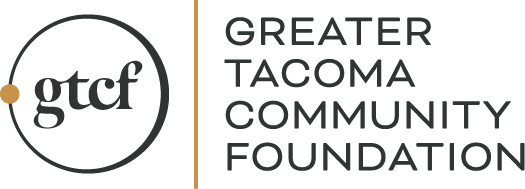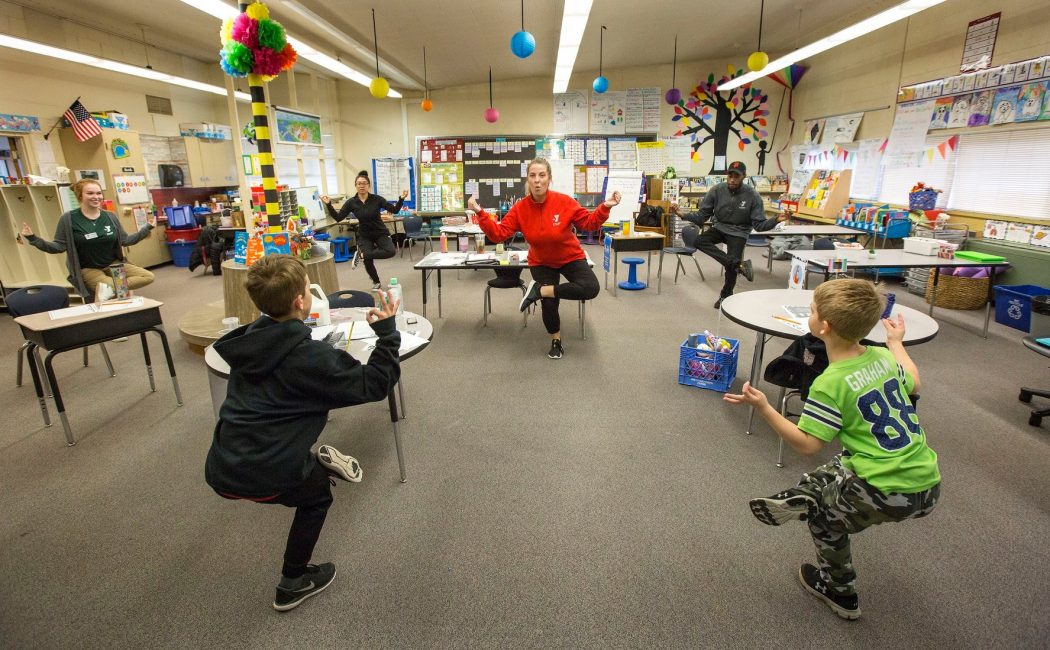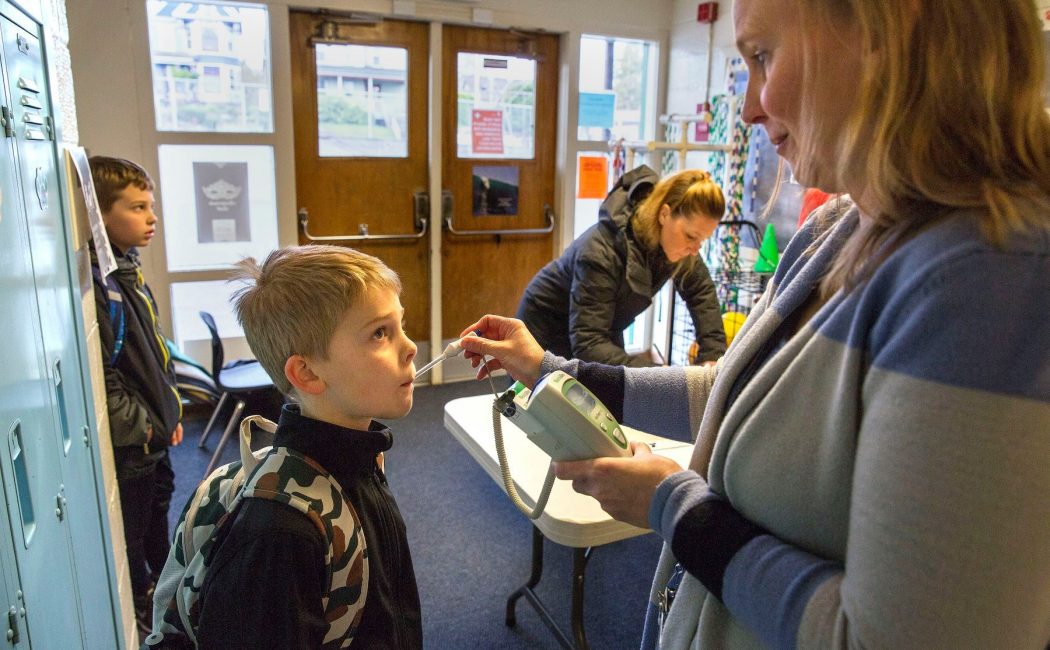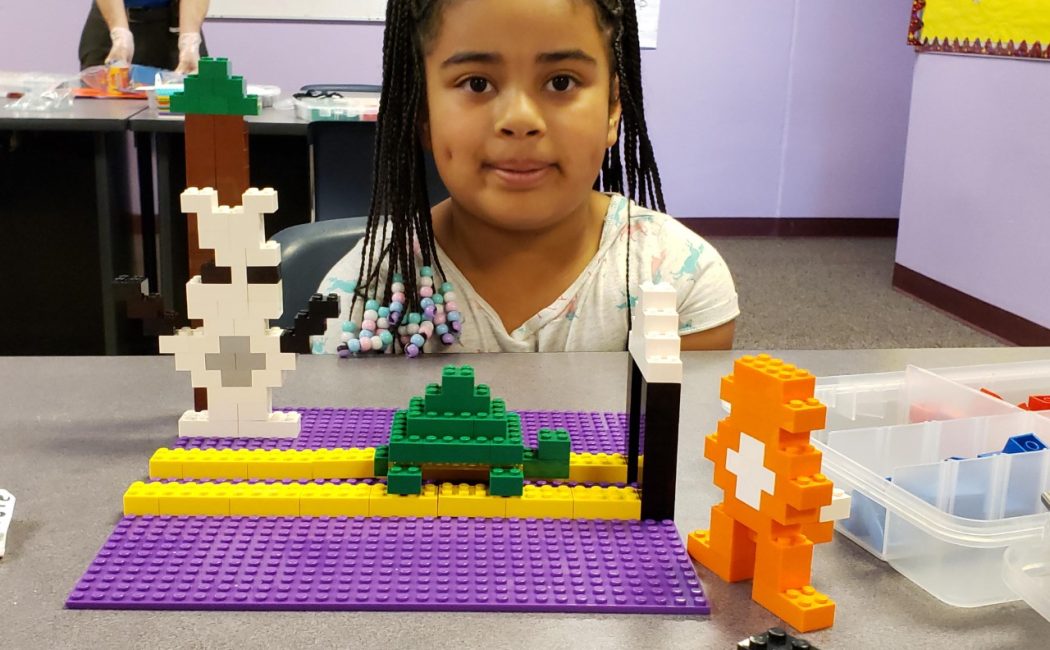
Community
14
2020
Social Emotional Learning Helps Kids Navigate COVID-19 Disruptions
Sharing is usually something adults encourage kids to practice. That’s why Tess Guerrero understood how strange it sounded when she explained to a student that they couldn’t share their supplies because of safety measures due to COVID-19.
“I don’t want to hear one more thing about this virus!” the student exclaimed.
Tess said the student’s reaction exemplifies the difficult emotions young people are feeling right now. “You can see the impact on our kids…it’s got to be such a confusing time for them.
“I feel like the SEL work is so important, especially during this time, to help students navigate through something like this, because it’s a different kind of experience.”
Tess is a dance teacher with Tacoma Arts Live. While schools across the state are operating remotely due to the COVID-19 pandemic, Tess is one of several local educators teaching at Emergency Day Camps for children of first responders, hospital staff, and other essential workers.
These Day Camps launched rapidly in late March as Tacoma Public Schools, GTCF, and numerous Tacoma Whole Child partners shifted their focus from aligning in-school and afterschool Social Emotional Learning to providing safe and reliable childcare for people on the front lines of the pandemic.
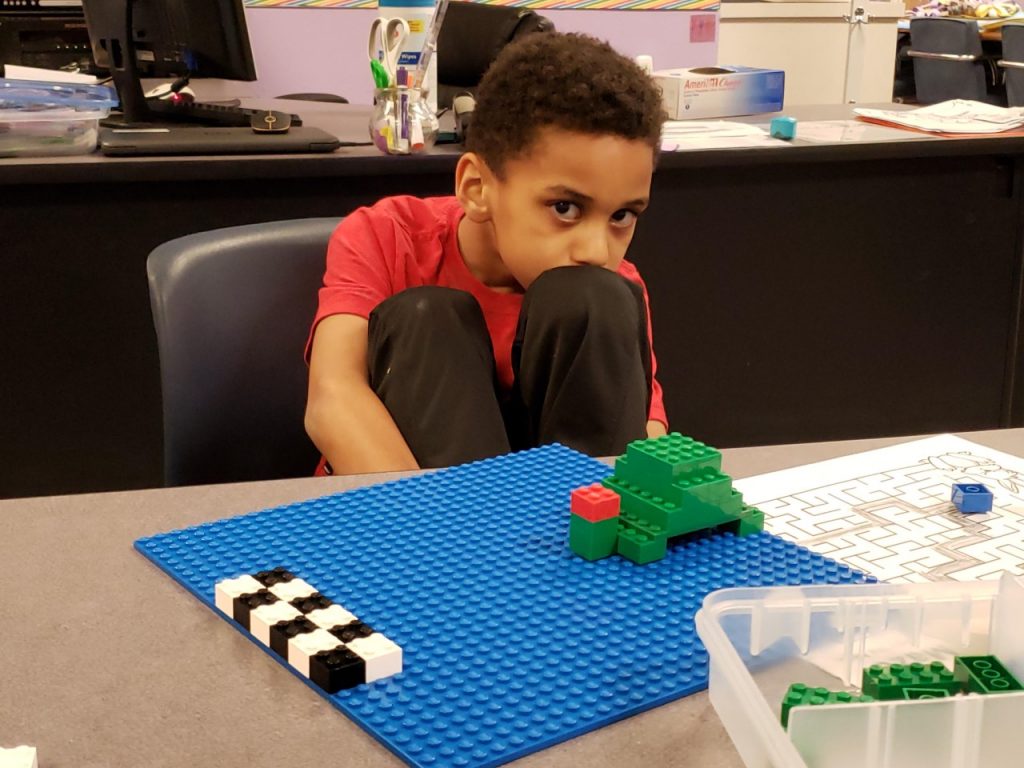
PHOTO: Snapology, a Whole Child partner that uses Legos to teach STEM skills
GTCF Senior Program Officer Fahren Johnson, explained how the work Whole Child partners have done in recent years helped prepare them to support families in this crisis. “We’ve been doing Social Emotional Learning work for the last two years, so it’s almost like we are primed for this time, right now.”
Though they’ve had to adapt many aspects of their programs to comply with Department of Health guidelines, Whole Child partners have made an effort to continue emphasizing Social Emotional Learning (SEL) activities at the Day Camps to help support students.
“We didn’t need to reinvent the wheel. It was just about looking at what we were already doing and asking, ‘How can we do these things in a way that keeps everyone safe and doesn’t have everyone touching things?’”
“I feel like the SEL work is so important, especially during this time, to help students navigate through something like this, because it’s a different kind of experience.” explained Venalin Aguilar, Whole Child Site Director. “Some of the students are there all day and the way the structure is set, they can’t leave the room. Just being in there for that amount of time, not knowing what a day is going to look like, not knowing what a week is going to look like, the SEL work is really important in helping them express how they feel and not be so scared about it.”
Kayla Davis, GTCF Program Associate says ensuring that adults working with the students are adequately prepared with the lesson plans, resources, and information they need, helps them pass along a sense of calm to the kids. “It’s already high anxiety space for the students with COVID-19 and all of their parents being on the front lines of it. We want to make sure the adults working with them are prepared to support them in navigating those difficult emotions.”
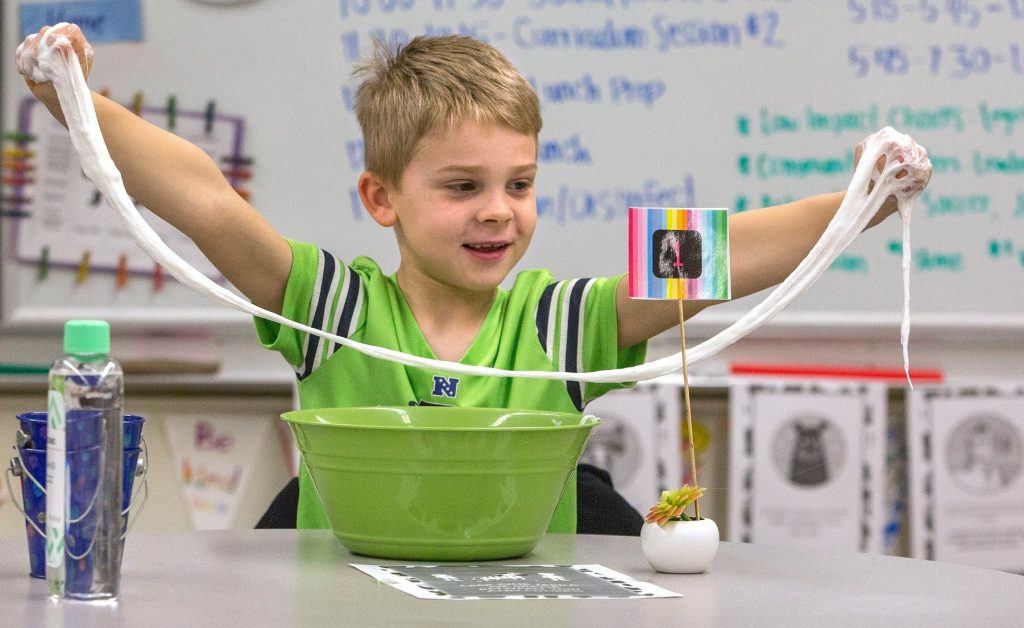
PHOTO: Tacoma Public Schools
In order to help Whole Child partners continue offering SEL-infused activities at the Day Camps while maintaining best public health practices, GTCF Senior Program Officer Megan Smedsrud developed a COVID-19 SEL Tookit. Megan’s tool kit included simple “hands-off” solutions for many of the signature SEL practices they normally use like: warm greetings for students, daily emotional check-ins and community circles. “We didn’t need to reinvent the wheel. It was just about looking at what we were already doing and asking, ‘How can we do these things in a way that keeps everyone safe and doesn’t have everyone touching things?’”
“if the students are having experiences that help them process what they’re feeling, or give them a chance to dive into something completely different where they can forget about the challenges they’re experiencing…that’s what meaningful looks like.”
Instead of a handshake or high-five at the door for a warm greeting, the toolkit offers ideas like giving each student a compliment as they enter, saying “hello” in different languages, or having a 5-second dance off. To create opportunities for daily emotion check-ins, the toolkit suggests a North, South, East, West activity, where each direction of the room represents an emotional zone that a student can stand to express how they are feeling.
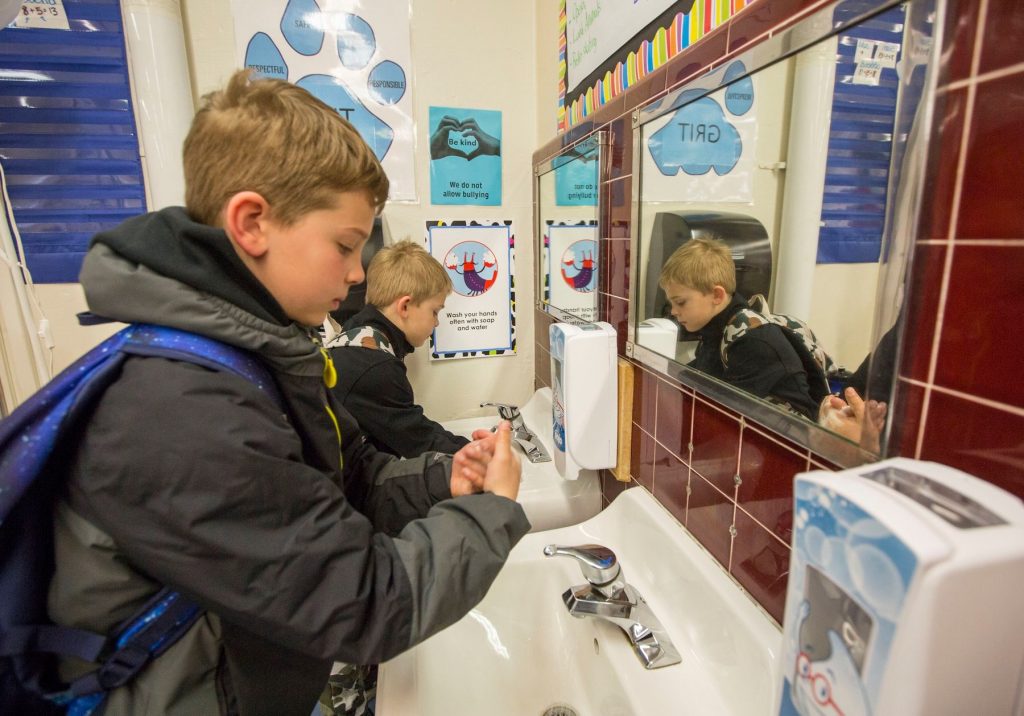
PHOTO: Tacoma Public Schools
Megan looked to evidence-based resources, such as The Collaborative for Academic, Social and Emotional Learning (CASEL) and the National Association of School Psychologists, rather than including, as she says, “things that just feel good.”
Back at the Day Camp, dance teacher Tess Guerrero reflected on how she hopes the activities help her students. “It’s not going to be all roses, but if the students are having experiences that help them process what they’re feeling, or give them a chance to dive into something completely different where they can forget about the challenges they’re experiencing…that’s what meaningful looks like.”
SEL FOR EVERYONE DURING COVID-19
While the SEL activities in the toolkit were designed with kids at the Day Camps in mind, these suggestions from the National Association of School Psychologists can support anyone living and working with kids – as well as adults – during COVID-19.
Helping Students Regulate Emotions
•Be a role model. Children will react to and follow your reactions. They learn from your example.
•Be aware of how you talk about COVID-19. Your discussion about COVID-19 can increase or decrease your child’s fear. Remind children that you are going to do everything within your power to keep them well and safe when they are with you. Carefully listen or have them draw or write out their thoughts and feelings and respond with truth and reassurance.
•Explain social distancing. Children probably don’t fully understand why parents/guardians aren’t allowing them to be with friends. Tell children that you are following the guidelines of the Centers for Disease Control and Prevention (CDC), which include social distancing. Social distancing means staying away from others until the risk of contracting COVID-19 is under control. Showing older children the “flatten the curve” charts will help them grasp the significance of social distancing. Explain that while we don’t know how long it will take to “flatten the curve” to reduce the number of those infected, we do know that this is a critical time—we must follow the guidelines of health experts to do our part.
•Demonstrate deep breathing. Deep breathing is a valuable tool for calming the nervous system. Do breathing exercises with children.
•Focus on the positive. Create masterpieces. Sing, laugh, and go outside, if possible, to connect with nature and get needed exercise.
Regulating YOUR Emotions
•Pay close attention to your own feelings of stress or anxiety.
•Practice continued self-care strategies, including eating healthy, getting enough sleep, exercising, and finding time to take breaks.
•If you find yourself overwhelmed by negative thoughts, find ways to reframe your thinking.
•Seek out needed mental health support for yourself or loved ones.
•Keep a regular sleep schedule. Sleep plays an essential role in mental and physical health!
COVID-19 Resources
•How to Talk to Kids about Coronavirus
•A Comic for Kids Explaining Coronavirus
•National Alliance on Mental Illness Covid-19 Resources
More Stories from Tacoma Public Schools Emergency Day Camps
Sharing Art Beyond Our Walls – Tacoma Art Museum
School-Based Day Camps for Children of Health Care Workers and First Responders – Tacoma Public Schools
